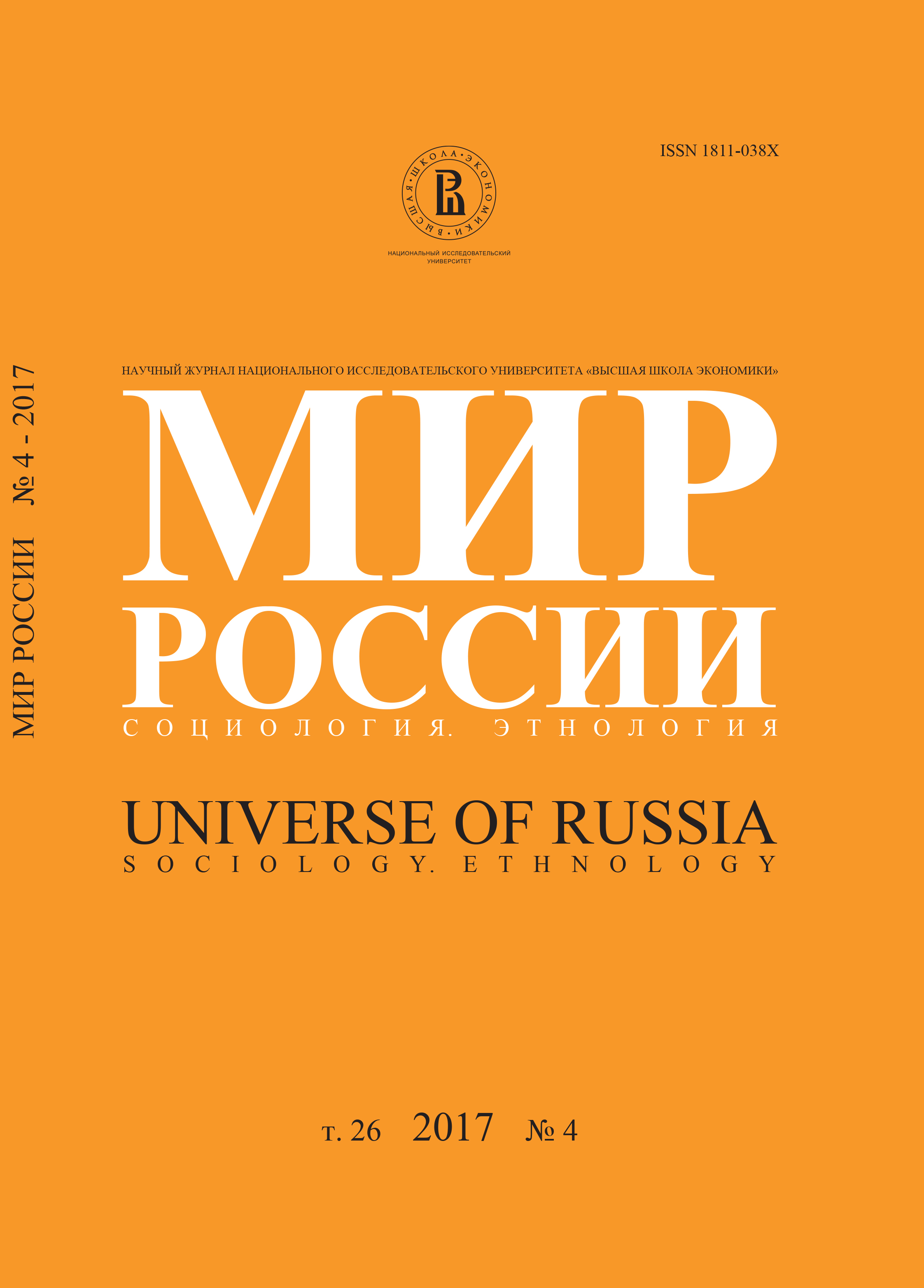Структура исторической колеи России: проблемы методологии
Аннотация
Владимир Иванович Ильин – доктор социологических наук, профессор, Санкт-Петербургский государственный университет, Сыктывкарский государственный университет; ассоциированный сотрудник, Социологический институт РАН. Адрес: 199034, Санкт-Петербург, Университетская наб., д. 7–9. E-mail: ivi-2002@yandex.ru
Цитирование: Ильин В.И. (2017) Структура исторической колеи России: проблемы методологии // Мир России. Т. 26. № 4. С. 30–50. DOI: 10.17323/1811-038X-2017-26-4-30-50
Целью данной статьи, продолжающей размышления на темы, которые обсуждаются
в монографиях «Россия как цивилизация» и «Нова ли новая Россия?», является попытка уточнить категориальный аппарат, позволяющий интегрировать цивилизационный подход и концепции социальной инерции (зависимости от прошлого пути – path dependency). Цивилизационный подход, возникнув в рамках философии истории, в силу масштаба предмета не склонен вглядываться в эмпирические детали. Сейчас он все активнее проникает
в историю, экономику и социологию. Однако сдвиг в предметном поле не подкрепляется разработкой адекватной этим конкретным наукам методологии. В условиях нехватки эмпирических аргументов, выстроенных в соответствии с принципами научной методологии, вопрос о месте России в системе локальных цивилизаций по-прежнему остается предметом веры, поскольку ни одна из спорящих сторон не может привести аргументы, представляющиеся оппонентам убедительными. Главным недостатком существующих исследований данной проблемы остается акцент на методах сравнения, часто допускающих синхронное сравнение стран, находящихся на разных этапах развития одного и того же типа общества, использование произвольно подобранных аналогий, что отвечает логике дедукции, когда факты собираются для иллюстрации теоретической концепции. Неудивительно, что проблематика цивилизационного анализа России, несмотря на полуторавековую историю, больше интегрирована в идеологический, чем научный дискурс. Концепции социальной инерции, возникшие в экономических науках, гораздо более точны и конкретны, но именно в силу этих достоинств они с трудом применимы для тысячелетнего диапазона.
В статье предлагаются две группы категорий, которые могут стать неким шагом вперед на пути сближения цивилизационного подхода и концепций зависимости от прошлого пути. Первая группа категорий позволяет анализировать механизмы исторической преемственности периодов одной цивилизации: (1) цивилизационный стержень как совокупность факторов, действующих на протяжении всей истории; (2) историческая колея как реальные формы реакций на них, создающие фундамент для последующих периодов; (3) цивилизационные ловушки как шаги (часто политические), приобретшие необратимые последствия для будущего. Вторая группа категорий – это разные типы колеи, пронизывающие многовековую историю: географическая, геополитическая, политическая, колея собственности, религиозная, ментальная и колея исторической памяти. Данная категориальная сетка дает возможность упорядочить эмпирическую проверку гипотез цивилизационного анализа относительно многовековой преемственности.






